| All Artists: Wolfgang Amadeus Mozart, Sir Neville Marriner, Academy of St. Martin-in-the-Fields, Alfred Brendel Title: Mozart: The Great Piano Concertos, Vol. 2 Members Wishing: 0 Total Copies: 1 Label: Philips Release Date: 10/11/1994 Genre: Classical Styles: Forms & Genres, Concertos, Historical Periods, Classical (c.1770-1830), Instruments, Keyboard Number of Discs: 2 SwapaCD Credits: 2 UPC: 028944257120 |
Search - Wolfgang Amadeus Mozart, Sir Neville Marriner, Academy of St. Martin-in-the-Fields :: Mozart: The Great Piano Concertos, Vol. 2
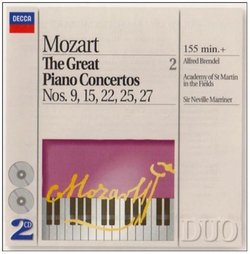 | Wolfgang Amadeus Mozart, Sir Neville Marriner, Academy of St. Martin-in-the-Fields Mozart: The Great Piano Concertos, Vol. 2 Genre: Classical
![header=[] body=[This CD is available to be requested as disc only.]](/images/attributes/disc.png?v=15401716) ![header=[] body=[This CD is available to be requested with the disc and back insert.]](/images/attributes/disc_back.png?v=15401716) ![header=[] body=[This CD is available to be requested with the disc and front insert.]](/images/attributes/disc_front.png?v=15401716) ![header=[] body=[This CD is available to be requested with the disc, front and back inserts.]](/images/attributes/disc_front_back.png?v=15401716) |
Larger Image |
CD DetailsSimilar CDsSimilarly Requested CDs
|
CD ReviewsGreat performances, great price MurrayTheCat | upstate New York | 12/22/2002 (5 out of 5 stars) "This is an inexpensive way to get five concertos by two great Mozarteans: Brendel and Marriner. The recordings are from their much-lauded cycle dating from the 70s and early 80s. These are great performances, and this release includes Brendel's compelling 9 and his nonpareil 15.This recording of 9 is my all-time favorite, surpassing even the marvelous Ashkenazy/Kertesz (London). In 15, perfect tempos and perfectly judged phrasing, along with the superb orchestral accompaniment, make this one simply unbeatable. II is exceptionally beautiful. At 1:49, where the strings take over the melody and the piano plays arpeggios, it's just gorgeous beyond belief. No other recording of this moves me more. I can find nothing wrong with Brendel's 22, but here he doesn't smile as much as Barenboim (EMI) and Ashkenazy (London). It's worth mentioning that 22 is split between the two discs.25 is the only concerto from this cycle with Marriner that was recorded live. It's a barnburner and Brendel is superb throughout. You'll never guess it's live until III, where it becomes quite obvious. Two more great 25s are Barenboim (EMI) and Ashkenazy (London). Brendel is graceful in 27 and the Academy plays wonderfully. But my favorite here is Serkin/Abbado (DG), which, for me, yields the best blend of sunlight and darkness in this reflective piece. Also not to be missed is the almost miraculous performance by Emil Gilels with Karl Böhm and the Vienna Philharmonic. There is also the very fine recording by Daniel Barenboim on EMI.There is a companion to this release on Philips that includes five more Mozart concertos: Brendel's fabulous 19 and 23 along with 20, 21 and 24. If you like this cycle, you can always go for the complete set of concertos by Brendel and Marriner (Philips 422 507), like I eventually did. Cheers, Murray" Volume 2 of great Mozart concertos; superb! Mike Powers | Woolwich, ME USA | 05/07/2000 (5 out of 5 stars) "This 2-CD set, which contains 5 of Mozart's most famous piano concertos, is absolutely superb! From opening to closing measure of every selection, pianist Alfred Brendel and the Academy of St. Martin-in-the-Fields, under the direction of Sir Neville Marriner, team up to establish a splendid musical dialog. Brendel is a wonderful interpreter and player of Mozart's music; I found him to be particularly expressive in Concerto No. 9 (The "Jeunehomme") - one of my favorites. Each concerto is sheer magic from start to finish. For lovers of Mozart's piano concertos, this, and its companion "The Great Piano Concertos, Volume 1," are THE CDs to own!" Penguin Guide "Recommended Recording" Alan Lekan | Boulder, CO | 01/21/2006 (5 out of 5 stars) "With his 27 piano concertos, Mozart developed the form to a new level of artistry and claimed dominion of the new musical genre. The first seven concertos resulted from early composition exercises from his father converting Baroque sonatas to concerto form (most not-so-special). The first truly-original piano concerto No. 5 was composed at age 17 and No.'s 14-27 are all considered mature and monumental with anything in the 20's truly magnificant. Even works as early as No. 9 "Jeunehomme" (composed for a female French student, Mlle. Jeunehomme, perhaps a love interest) reveal an uncharacteristic maturity, depth of beauty and perfection of form for such a young composer. While most of the 27 concertos are sunny and galante, the two minor-key concertos (No. 20 & 24 on Volume I) reveal Mozart's evolution into more personal, dramatic expression - foreshadowing the Romantic era ushered in part by Beethoven. However, by the late 1780's, the fickle Vieneese who were "so done" with his music, leading to Mozart's demise. Late in Mozart's life there appeared to be a "new phase" of introspection and simplicity as seen in the poignant last Concerto #27 (along with his last chamber works). But this was sadly cut short by his early death in 1791.
These readings by Brendel and Marriner are alive with enthusiasm, warmth, and the typical Brendel precision. The balance of the piano and orchestra is perfect and allow the drama to unfold unhindered. Along with Murray Perahia's and Andras Schiff's complete cycles, Brendel's performances of Mozart's piano concertos are considered - on the whole - to be at the top of the list overall. Highlights in Vol. II here must certainly be the simple beauty and chamber-like feel of Concerto No. 9 "Jeunehomme," the sparkling No. 22 (K.482) and the poignant "swansong" concerto, No. 27 (K. 595). Where volume II features these two more subdued concertos of immense tenderness (no timpani or trumpets), Volume I contains the powerfully emotive, crowd-pleasing D-minor and C-minor concertos No. 20, 24 - along with the famous and bubbly C-major concerto. Both volumes are essential listening, but that much might guide your first purchase if you can only get one set. The six works on these two CD's (along with those of the sister set) are among the most skillfully composed, musically appealing and rightfully popular of Mozart's 27 piano concertos (hence the term, "Great Concertos"). Both sets received the highest Penguin Guide rating (Rosette) and are an official "Recommended Recording." Nice compliment. Additionally, Gramophone says "this set can be recommended without any reservations." The sound quality/balance is good but not best-in-class but the value is excellent. For those who like the sound of a Mozart-era fortepiano and more "period performances," there is a splendid 9-CD "complete" set of Mozart's piano concertos (no.'s 5-27) by Malcolm Bilson and the English Baroque Soloists w/ Sir John Gardiner conducting that is both top-notch music and a super value on DG. For modern perfomances, Murray Perahia's legendary complete set has been remastered for superior sound by Sony and ranks as a top choice." |

 Track Listings (7) - Disc #1
Track Listings (7) - Disc #1

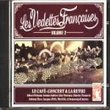
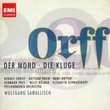


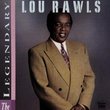



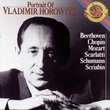
![Beethoven: Symphony No. 9 [1895 Gustav Mahler Edition]](https://nationalbookswap.com/cd//m/83/1483/6001483.jpg)